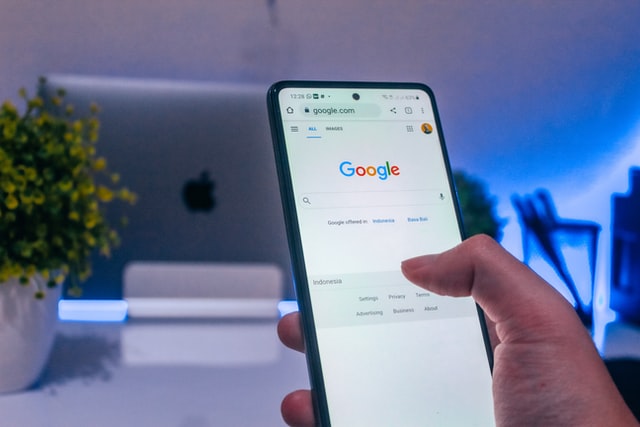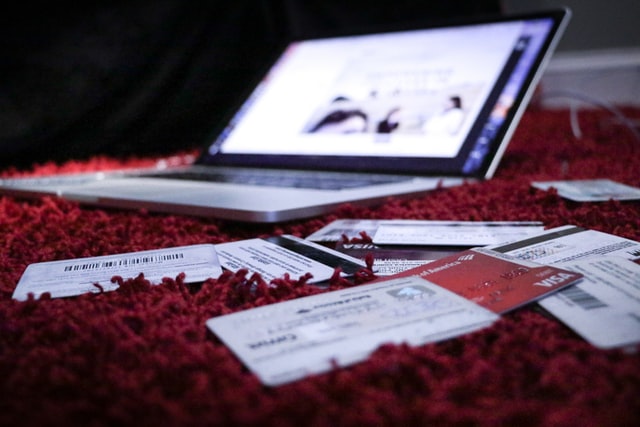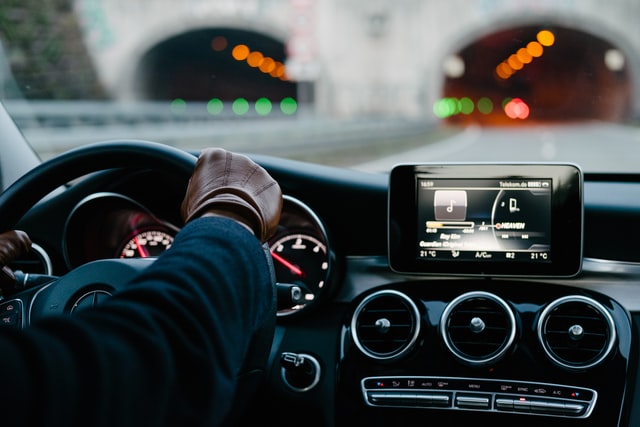Buying your first car can be an exciting experience, but there are several important factors to consider before deciding. As a first-time car buyer, you should be aware of the following eight tips. Continue reading to find out.
The big day has finally arrived: you’re ready to trade in your father’s old sedan for your first car… Or perhaps you’ve never owned a car before, and this is your first.
Despite months of consideration and visits to the dealers, you realise that purchasing a car takes longer than you anticipated. Is that normal?
It is, in a way. The lengthy and overwhelming process of buying a car is due to the several distinct phases that make up the entire process: first, you may spend hours studying different makes, dealerships, models, and colours.
Following that, you’ll need to think about your financing choices, get a car loan and road tax, inspect the vehicle thoroughly, take it for a test drive, negotiate for a fair deal (if possible), and lastly, fill out all the paperwork and have it delivered.
Overall, overwhelming is an understatement, but keeping the big picture in mind can help keep the stress at bay and hopefully your finances intact.
The ultimate goal is to purchase a car at a reasonable price because, after all, you want to be a smart and intelligent shopper. So, if you’re a first-time car buyer, we’ve put together a checklist of stuff you should check off your list.
Be truthful about your needs – is purchasing a car a necessity or a desire?


Answering the big why is something you must do before proceeding with your various plans. Why do you need a new car? Do you only need it for extended trips, or do you need it regularly?
If you only need it for long vacations, you might consider renting a car instead, as it is a less expensive option. Different people will have different needs and reasons for purchasing a vehicle, but it makes more financial sense to buy a car for your daily commute to work or school rather than a one-time or occasional trip.
For example, if you can get around and carry out your day-to-day and weekend activities without a car – for instance, if you are a student who lives close to your university or work close to your office – you don’t need a car if you don’t already have one.
Aside from the convenience of having a car, consider how having a car could be beneficial to your safety, especially if you are the type who leaves school or work late at night. Don’t hitch rides to avoid getting a car because it’s dangerous. You should also avoid walking to your usual destination if it is too far away.
Figuring out this step is critical because it clarifies your intentions.
Have you considered your financials and budget?


Though this is the most time-consuming step, it helps you determine whether you are financially prepared to buy a car in the first place.
The total cost of your car will include more than just the sticker price you see online or at the dealer; it will also include things like title and registration fees, sales tax, and optional items like extended warranties.
Other costs would include financing (aka monthly payments), road tax, maintenance and repair, insurance, fuel, and depreciation. Remembering this will allow you to be more flexible with your budget when shopping for a new car.
Overall, the total cost of ownership of a car is significantly higher than the purchase price. According to a study, depreciation, or the loss in value over time, accounts for most of these additional costs (40 per cent).
To avoid falling into deep debt, make sure you can afford the monthly payment when buying your first car. When taking out a loan, you should consider how the loan term, interest rate, and down payment will affect your monthly payment.
If the interest rate is high, you may want to wait until the rates have dropped and become more affordable to avoid paying high monthly bills. To avoid high bills, you could also put more money down for a down payment.
We recommend applying the 20/10 rule to better manage your debt, which specifies how much of your annual and monthly take-home pay should be allocated to consumer debt payments. In this context, that means giving around 10% of your income to your vehicle, if possible. So, if you earn about RM5,000 per month, you’ll want to set aside RM500 for car payments each month.
Another helpful financial tip is the 28/36 rule, which states that a household should spend no more than 28 percent of its gross monthly income on total housing expenses and no more than 36 percent on total debt service, including car loans, credit cards, and mortgages.
Deplete all options, which is now easier thanks to the Internet.


When looking for a car, there are numerous factors to consider. Other factors to consider besides the type of car includes new vs used car, dealer vs private party, different makes, and the colour of your vehicle.
To avoid being overwhelmed by all of the options, consider creating a checklist for all of the factors you consider a necessity or a priority, as different people value different things.
Google the information if you are stuck for ideas! The internet is literally the best source of information.
Find out what sellers are in your area or beyond, and look for sellers at various price points, i.e. from less expensive to more expensive.
This is also the stage at which you must decide what kind of car you want, such as safety or auto type (like SUVs, hybrids).
While buying your first car sounds appealing, the high price tag may be a deterrent, especially if you’re young and have recently entered the job market. Using a used car would make more financial sense for you because the overall cost would be lower.
But, of course, you should avoid buying a completely worn out or old car because this will only cause you more problems. Instead, look for a gently used vehicle to save thousands of dollars. Carsome, Carlist, CarBase.my, and Mudah.com are some places to look for used cars. Keep in mind that while used cars are less expensive, the insurance premiums may be higher because the car is riskier due to its age.
It may not be the centre of attention, but where you are buying your first car is essential. Some car buyers prefer private owners because they may be close friends or relatives who offer better prices, but shopping through dealers has its advantages.
Dealers, for example, offer certified pre-owned vehicles that have met industry standards of excellence. This almost guarantees that you will not walk away with a risky purchase. Used cars from dealers often come with warranties, which gives you extra peace of mind if something goes wrong after you buy them.
Though it may not appear evident at first, the best value for money may not always be the lowest Ringgit price because the product’s outcome determines value.
When searching for a car, make sure you ask the right questions.


You won’t know what you don’t know unless you ask the right questions first. Don’t be afraid to ask as many questions as you need to get a better understanding of what you’re about to invest in.
But, to get the correct answers, you must first ask the right questions. As a result, ask as many questions as you can about the car’s performance and history.
Based on our research, here are some questions to ask about used cars.
- “Can you tell me why you’re selling this car?”
- “Do you know of any problems with this car?”
- “How many previous owners have there been?”
- “Do you have any documentation regarding recent maintenance or repairs?”
- “Has this vehicle ever been involved in an accident?”
- “When was the last time you had your oil changed?”
- “Do you have a mechanic?”
Don’t forget to ask for the vehicle’s history report. Find out if it has been in any major accidents and about its repair history. Check to see if any of its parts have been recalled.
Finally, have your independent mechanic inspect the vehicle. If you find a problem, find out how much it will cost to fix it and decide if it is worth it.
Your credit score is important; make sure it is good.


Your credit score will influence the interest rate you pay on a car loan or car insurance.
Better credit means you’ll be able to get better interest rates, which will affect your overall car-buying budget.
So, if your loan application was denied, it could be because of your poor to low credit score, which, according to CTOS, typically ranges between 300 and 651. A low credit score not only reduces your chances of getting a loan, but it may also cause you to be denied a new credit card, have to pay higher interest rates, or even be rejected for a job.
Here are some suggestions to help you improve your score.
- Personal information should be updated.
- Pay off your debts
- You must pay your bills on time.
- Examine your financial relationships.
- Create a credit history
Take your time when looking for car insurance and a loan – don’t rush through it.


The type of coverage you require will be influenced by the vehicle you purchase and vice versa. You can’t avoid this step because you’ll need car insurance and a road tax to drive legally in Malaysia!
Find a policy that meets your needs and provides maximum coverage at the lowest possible cost. If you need more advice when shopping for car insurance, we recommend reading this article.
Likewise, looking for a car loan gives you an idea of how much you can borrow (and at what interest rate). You must know how you’re going to pay off your car!
Avoid vehicles with a low resale value.


We don’t usually stick to our firsts, and the same is true for our cars. You’ll most likely sell it off in a few years when your mobility needs increase or when you start earning more and can afford a fancier vehicle.
Cars, like computers, electronics, clothing, or shoes, do not last forever, and you will need to replace them at some point. Oh, and antique cars aren’t included because they’re only driven on rare occasions and are expensive to maintain.
If you’re on a tight budget, you could save money by not overspending on something that won’t last long. The goal is to keep the car’s value rolling until you make your next purchase.
If you are thinking about modifying your car, we recommend that you reconsider. Please don’t squander your money when it could be put to better use. This includes not changing your wheels, exhaust, or intake – in short, don’t do anything that will void your car’s warranty.
Take that car for a spin to see how it feels and performs.


You can’t truly grasp a situation unless you’ve been through it yourself.
The same can be said about cars. Even if you read hundreds of reviews, you won’t truly understand or know if a car is right for you until you take it for a test drive.
Each driver will have a unique experience behind the wheel, so do test the car yourself before making a decision.
Some of the critical factors we discovered to be on the lookout for are as follows:
- Make sure that the seats are both comfortable and easily adjustable.
- Check the blinkers.
- Keep an ear out for any clinking, clanking, or grating sounds that could indicate engine trouble.
- Check the brakes.
- Is it easy to drive? Examine the steering wheel to see if it is responsive.
- Blast the air conditioner to ensure it is working correctly.
- On the dashboard, look for any warning lights or symbols that are flashing.
Buying your first car is a big deal, so make sure you give yourself enough time to complete the purchase.
For many of us, our first experience with anything, such as purchasing our first home or car, holds significant value.
It is not a decision that can be made overnight or even after a month – it is a process that takes a long time due to the importance of the decision.
So please don’t feel obligated to figure it all out right away. Please don’t rush through it and give in to peer pressure because important things require more time, attention, and patience.
We hope you found this article informative! Feel free to drop a comment below if you need some suggestion on car choices!























Discussion about this post